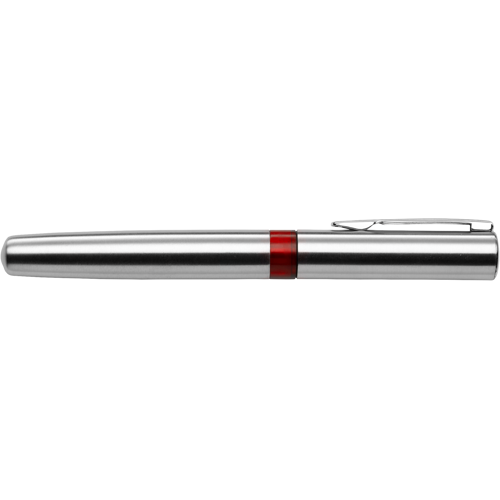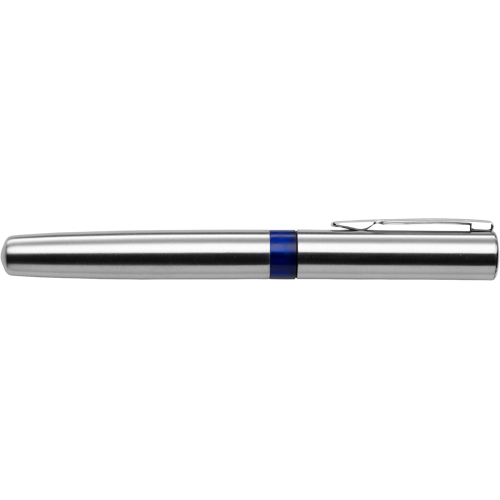

Salzburg steel ballpen
sign in to view pricing
sku. 003347
2 colours
Pad printing, is an “indirect offset gravure” printing process directly related to a process invented several hundred years ago in Europe.
The image to be printed is created on the printing plate, normally produced by chemical etching. The plate is generally steel or a nylon photopolymer material.
Pad printing inks contain solvents. The evaporation of the solvents from the ink is the main mechanism that enables the process to operate. When the ink is contained within the etched image area this evaporation of solvents causes the surface of the ink to become tacky. The shape of the pad is such that when it compresses on the plate the printing surface of the pad rolls across the plate, as it does so it comes into contact with the tacky surface of the ink. The ink sticks to the pad, as the pad lifts the printing surface rolls away from the plate and lifts up ink from the etching.
Whilst the pad moves towards the object to be printed the solvent continues to evaporate from the ink on the pad and the outside surface of the ink becomes tacky.
As the pad makes contact with the object and compresses, the print surface of the pad rolls across the object and the tacky surface of the ink attaches itself to the surface of the object. The pad then lifts and the printing surface of the pad rolls away from the surface of the object and releases the ink leaving it laying on the surface. Whilst this is happening the etched portion of the plate is recharged with ink, and the pad returns to pick up another image from the plate.
A whole range of variables will affect pad printing. Etch depth, ink condition, ambient conditions, pad shape, surface finish, hardness and machine speed are the key factors.
Conventional pad printing machines are divided into three families.
We use cookies to ensure our site operates effectively. By continuing, you agree to these cookies being set.